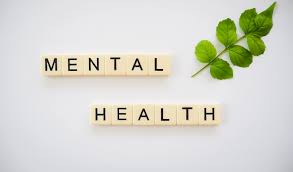Last updated on March 25th, 2024 at 11:08 pm
Drug addiction is a complex and challenging condition affecting millions worldwide. The impact of addiction extends beyond the individual, impacting families, communities, and society.
Recognizing the need for effective treatment, various approaches have been developed to address drug addiction and support people on their path to recovery. Join us as we explore some of these treatment approaches.
Table of Contents
5 Common Treatments for Drug Addiction
1. Medical Detoxification
Medical detoxification is often the first step in treating drug addiction. It involves the supervised withdrawal from substances while managing withdrawal symptoms.
Medical professionals closely monitor your physical and mental health, providing medications when necessary to ease discomfort and ensure safety during detoxification. Medical detoxification helps to cleanse your body from drugs and prepares you for further treatment.
2. Behavioral Therapies
Behavioural therapies play a crucial role in treating drug addiction by addressing the psychological and behavioural aspects of the condition. For example, cognitive Behavioral Therapy (CBT) focuses on identifying and modifying negative thought patterns and behaviours associated with drug use.
Contingency Management provides positive reinforcement for drug-free behaviours, while Motivational Interviewing enhances intrinsic motivation to change. These therapies help people develop coping strategies, build resilience, and replace unhealthy habits with healthier alternatives.
3. Residential Treatment Programs
Residential treatment programs offer a highly structured and supportive environment for people recovering from drug addiction. These programs typically involve comprehensive services, including individual and group counselling, educational sessions, and therapeutic activities.
Residential treatment provides a safe and immersive space where people can focus on their recovery, away from the triggers and stressors of daily life. Peer support and 24/7 professional care further contribute to the effectiveness of these programs.
4. Outpatient Treatment Programs
Outpatient treatment programs offer flexibility for people who require ongoing support while maintaining their daily routines. These programs vary in intensity and duration, with counselling sessions, support groups, and educational workshops forming the core components.
Outpatient treatment allows you to receive treatment while living at home, providing them with the opportunity to apply new skills and strategies in their everyday lives. Ongoing monitoring and support help individuals stay on track with their recovery goals.
5. Medication-Assisted Treatment
Medication-Assisted Treatment (MAT) combines medications with behavioural therapies to address drug addiction. Medications such as methadone, buprenorphine, and naltrexone are used to reduce withdrawal symptoms, minimize cravings, and block the effects of drugs.
MAT is particularly effective for opioid addiction and has shown promising results in improving treatment outcomes. Combining medication with counselling and therapy helps you address the underlying factors contributing to addiction and develop healthier coping mechanisms.
Related Articles:
How to Take a Holistic Approach to Your Health
Things You Can Do to Help Relieve Anxiety and Stress
Conclusion
Treating drug addiction requires a comprehensive and individualized approach. Medical detoxification, behavioural therapies, residential and outpatient treatment programs, and medication-assisted treatment are vital methods to support individuals on their recovery journey. It is crucial for individuals struggling with drug addiction to seek professional help and explore the available treatment options. With the proper support and dedication, recovery from drug addiction is possible, enabling individuals to regain control of their lives and experience lasting positive change.







